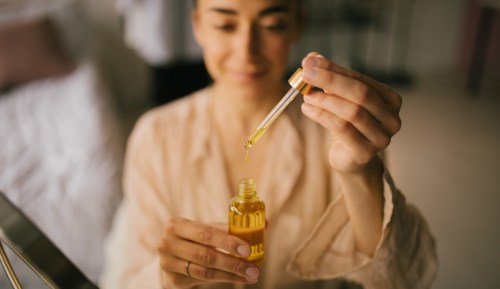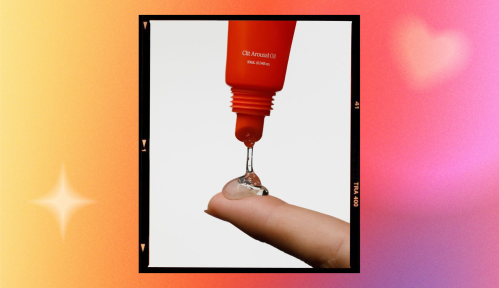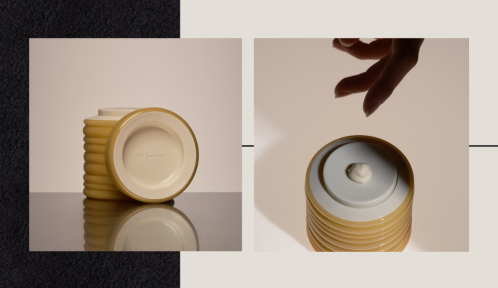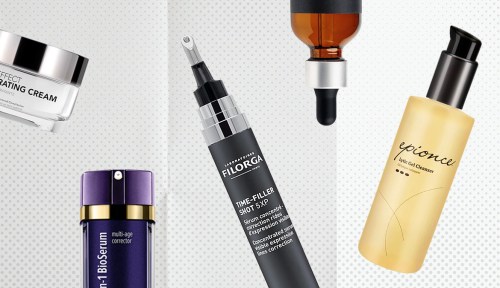Our editors independently select these products. Making a purchase through our links may earn Well+Good a commission
There are a few key elements that make up a solid anti-aging routine: retinoids for stimulating cell turnover, hyaluronic acid supplements for extra hydration, peptides for boosting collagen production, and of course, SPF for preventing future damage. But according to dermatologists, there’s one other product that may be worth adding to your regimen: a facial oil.
Experts in This Article
board-certified dermatologist at Schweiger Dermatology Group in New York
“Facial oils, if used correctly and consistently, can provide a necessary seal for locking moisture in the skin, improving the skin’s hydration and the appearance of fine lines and wrinkles,” says Nava Greenfield, MD, a board-certified dermatologist with Schweiger Dermatology.
Keep scrolling to find out why she—and other derms—say you should be adding a facial oil for wrinkles into your regular routine.
Why facial oils can help with aging skin
As we get older, hormonal shifts cause the skin to become drier, our bodies produce less collagen and elastin, and our complexions start to show the effects of sun damage and oxidative stress more easily. According to the pros, however, the right facial oil will be able to remedy all of these things.
“Our skin produces less sebum with age so face oils are beneficial to maintaining skin hydration,” says Azadeh Shirazi, MD, a board-certified dermatologist based in San Diego. “Oils have the ability to form an occlusive barrier to prevent transepidermal water loss and allow other skin-care actives to penetrate better into the skin. Many also have antioxidant properties to help protect and repair the skin, and depending on the active ingredients they can also help to control bacteria and soothe inflammation.”
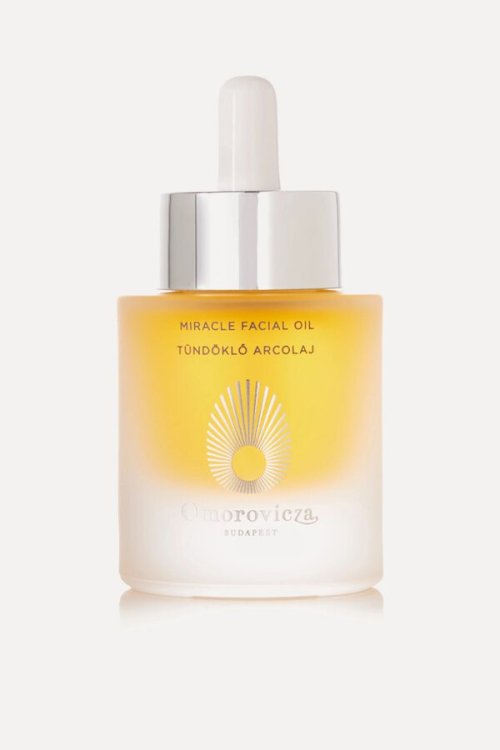
Omorovicza Miracle Facial Oil — $130.00
“This facial oil combines seabuckthorn oil with rosehip oil and bakuchiol, making it a great option for someone looking to improve the signs of aging,” says Dr. Garshick. “Seabuckthorn works to reduce dryness and hydrate the skin, while rosehip oil and bakuchiol together help to regulate skin cell turnover, improving the overall appearance of fine lines, while minimizing irritation.”
Pros
- Absorbs quickly
- Free of synthetic colors and synthetic fragrances
- Cruelty-free and vegan
Cons
- Expensive
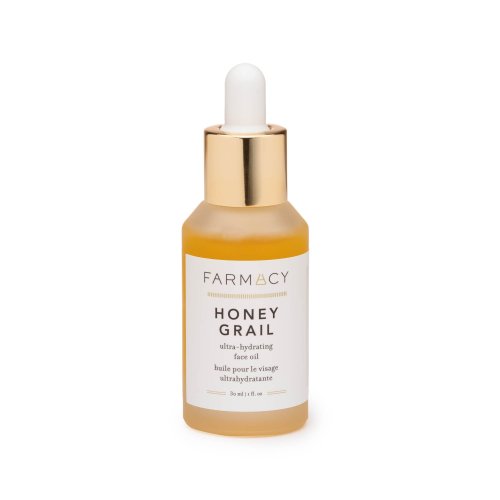
Farmacy Honey Grail Ultra Hydrating Facial Oil — $48.00
“This face oil is lightweight and easy to apply and uses seabuckthorn in combination with buckwheat honey to simultaneously hydrate and soothe the skin,” says Dr. Garshick. He suggests using it on its own or mixing it with your moisturizer for a double-whammy of hydration.
Pros
- Hydrates and soothes
- Non-comedogenic and lightweight
- Clean and cruelty-free
Cons
- Contains coconut oil
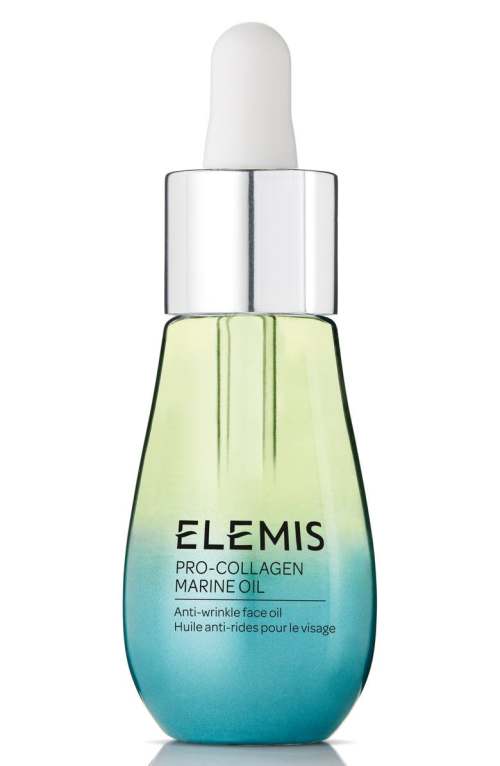
Elemis Pro-Collagen Marine Oil — $84.00
Marine ingredients have been popularized in skin care, thanks to their nutrient-rich properties, and this stuff delivers them in droves. “This lightweight facial oil is infused with various seaweeds, including padina pavonica, golden seaweed, and roaring water kelp, and helps to improve the appearance of fine lines and wrinkles,” says Dr. Garshick.
Pros
- Lightweight
- Anti-wrinkle
- Infused with seaweeds
Cons
- Light fragrance
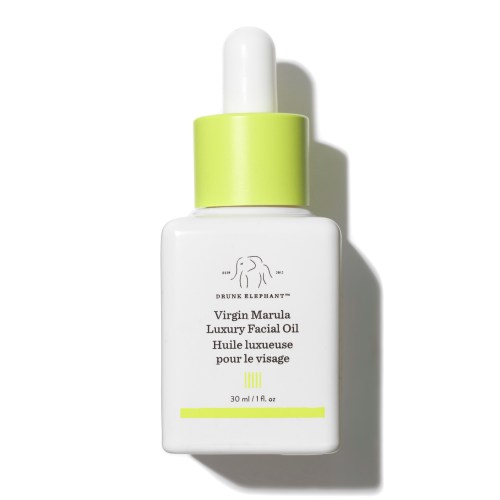
Drunk Elephant Virgin Marula Oil — $68.00
Dr. Shirazi is a fan of this best-selling face oil because it’s rich in antioxidants and fatty acids and also has antibacterial properties. It penetrates quickly and easily into the skin, which means you won’t have to worry about looking greasy after you apply it.
Pros
- Absorbs quickly
- Free of essential oils and silicones
- Vegan and cruelty-free
Cons
- Some reviewers say marula oil may cause breaakouts
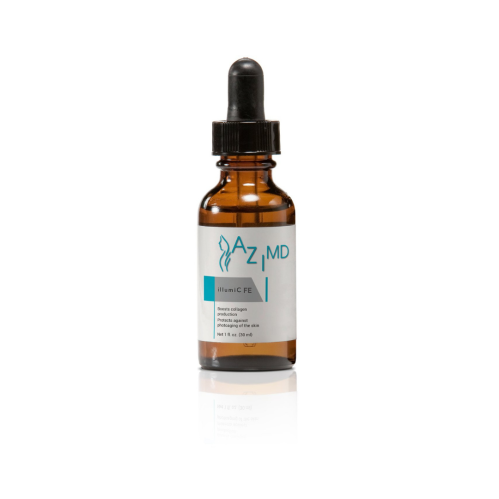
AZIMD IllumiC With Ferulic Acid — $120.00
Dr. Shirazi uses this particular facial oil on her own complexion every night after cleansing. “I have acneic skin that’s also dry and prone to hyperpigmentation so I find this to work best for me,” she says. “It is formulated with vitamin E oil and a potent blend of vitamin C 15 percent, ferulic acid, and antioxidants that reduce hyperpigmentation, boost collagen, and brighten the skin.
Pros
- Contains vitamin C and antioxidants
- Naturally derived
- No parabens, fragrance, sulfates
Cons
- Expensive
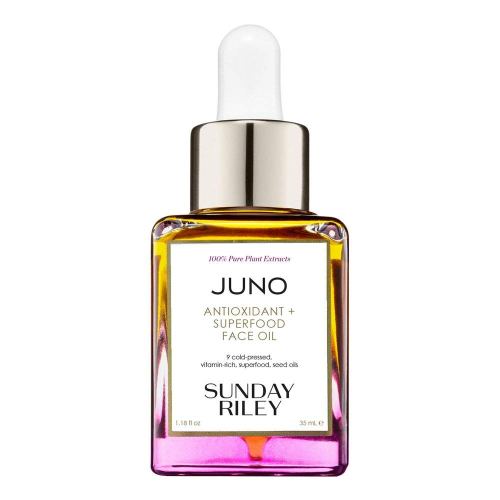
Sunday Riley June Antioxidant + Superfood Oil — $72.00
“This blend of oils is rich in antioxidants and hydrating ingredients including blackberry seed oil which contains vitamin C, blueberry seed oil, which contains vitamin E, and omega-3s,” says Dr. Garshick. “It absorbs easily while also giving the skin a nice glow.”
Pros
- Contains superfoods and antioxidants
- No parabens or sulfates
- Vegan and cruelty-free
Cons
- Some reviewers say it may irritate sensitive skin
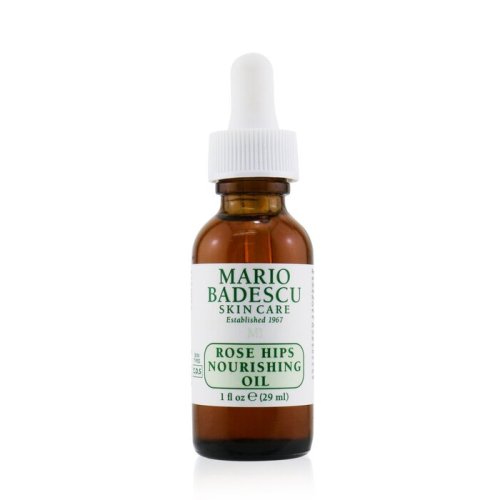
Mario Badescu Rose Hips Nourishing Oil — $22.00
Dr. Shirazi calls this a “great anti-aging oil” because it’s jam-packed with rosehip oil’s wrinkle-fighting prowess. It’s lightweight and easily absorbs into skin, which means you’ll hardly even notice it’s there within seconds of slathering it on.
Pros
- Lightweight
- Smooths dry patches
- Vegan-friendly
Cons
- Not as good for combination or oily skin
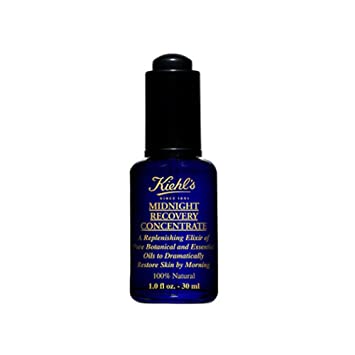
Kiehl's Midnight Recovery Concentrate — $52.00
This fan-favorite formula combines hydrating squalane with soothing essential oils and firming evening primrose oil. This thoughtful mix allows the oil to combat some of the most prevalent age-related skin concerns, including dryness, wrinkles, and irritation.
Pros
- Contains squalane oil
- Lightweight
- Clean and paraben-free
Cons
- Some reviewers say the lavender scent is strong
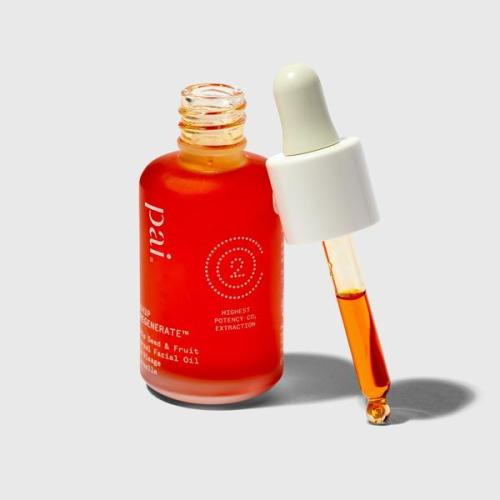
Pai Rosehip Bioregenerate Oil — $27.00
Another favorite of Dr. Shirazi’s, this rosehip-rich oil fights discoloration, uneven texture, skin laxity, and inflammation. It’s suitable for all skin types and has a certified organic formula.
Pros
- Made with organic rosehip oil
- Multi-tasking — helps dry parches, wrinkles, pigmentation
- Clean and cruelty-free
Cons
- Contains coconut oil
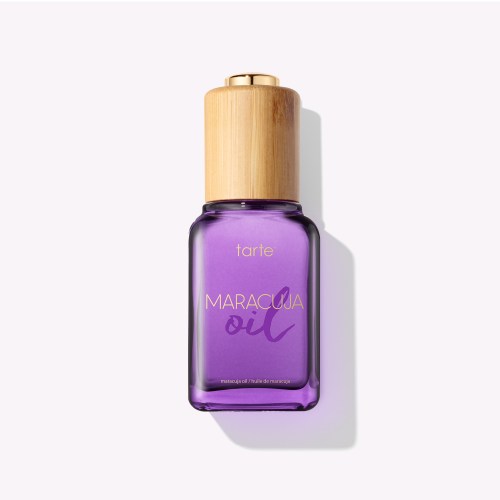
Tarte Maracuja Oil — $48.00
Maracuja oil is rich in vitamins C and E, which is why Dr. Greenfield loves this product for aging skin. Aside from using it to fight fine lines and wrinkles on your face, you can also use this formula as a hair-and-scalp mask, a cuticle conditioner, or a hand moisturizer.
Pros
- Contains vitamin C
- Can also be used on skin, hair and nails
- Dermatologist-tested
- Vegan and paraben-free
Cons
- Some reviewers say the smell is strong
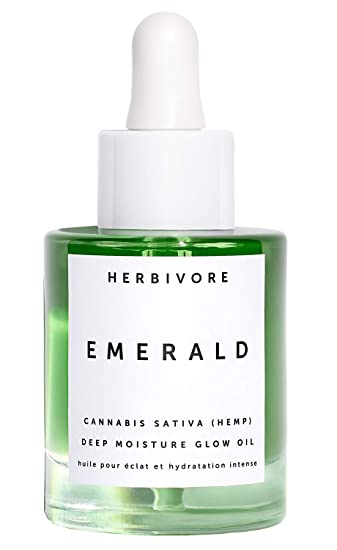
Herbivore Emerald Hemp Seed Deep Moisture Glow Oil — $48.00
With a trio of nourishing oils (olive-derived squalane, meadowfoam seed, and borage seed), this formula employs adaptogens to deliver the ingredients your skin needs to all the right spots. It’s also got hemp seed oil in the mix, which works to moisturize and calm your complexion.
Pros
- Contains adaptogens and squalane
- Has no THC or CBD
- Lightweight
- Clean
Cons
- Some reviewers say it caused clogged pores
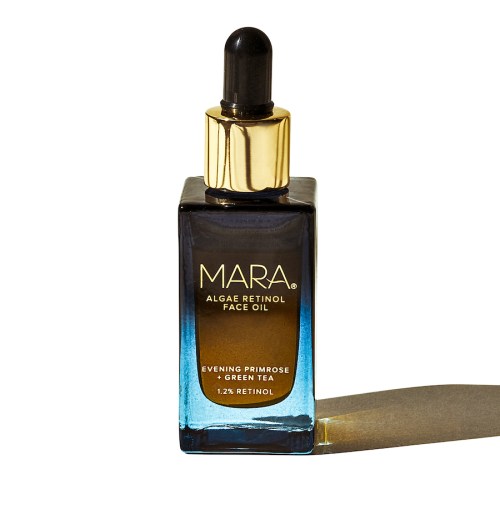
Mara Beauty Evening Primrose + Green Tea Algae Retinol Face Oil — $120.00
Retinol is known to be the gold standard of anti-aging ingredients, and this product delivers it in oil form to help minimize irritation. It’s made with fermented green tea, which helps with absorption, evening primrose for smoothing the skin, and hemp seed oil, which delivers amino acids and an overall radiant glow.
Pros
- Contains algae extracts and vitamin A
- Clean and cruelty-free
- Lightweight
- No alcohol, fragrances, or parabens
Cons
- Retinol may irritate sensitive skin
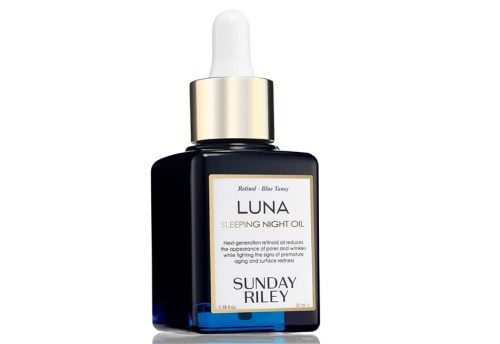
Sunday Riley Luna Sleeping Retinoid Night Oil — $104.00
Another retinol-spiked oil, this stuff pairs the anti-aging hero with botanical oils (namely blue tansy and German chamomile) to soothe skin and diminish redness, plus avocado oil, which offers plumping effects as well as antioxidant protection.
Pros
- Contains a botanical complex and avocado seed oil
- Lightweight
- Vegan and cruelty-free
Cons
- Retinol may irritate sensitive skin
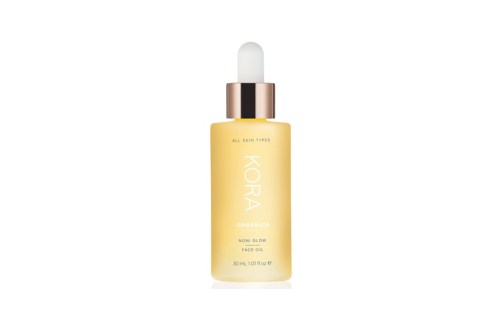
Kora Organics Noni Glow Facial Oil — $69.00
Supermodel Miranda Kerr has used this facial oil every day since she was 26, and the results are written all over her wrinkle-free face. “It smooths, nourishes, brightens, and helps even skin tone and texture,” she says. “It’s my holy grail oil that I use religiously morning and night. I cannot go without it!” It’s made with a blend of antioxidant-and-fatty-acids rich oils—including noni, rosehip, and seabuckthorn oils—giving it anti-inflammatory, anti-acne, and anti-aging properties. The combination of actives helps to reduce the appearance of acne scars and dullness, fights inflammation and hyperpigmentation, and increases skin elasticity.
Pros
- Hydrates and absorbs well
- Contains antioxidants and essential fatty acids
- Clean and cruelty-free
Cons
- Some reviewers say the scent is strong
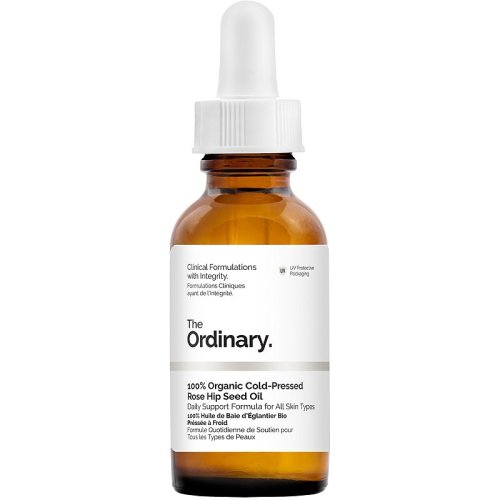
The Ordinary 100% Organic Cold-Pressed Rose Hip Seed Oil — $10.00
Don’t let this oil’s drugstore price point fool you—though it’s affordable, it still packs a major punch in diminishing the appearance of fine lines and wrinkles. Made with 100 percent pure rosehip oil (which is cold-pressed to ensure you’re getting maximum efficacy), you’ll know you can count on it to hydrate skin, fight inflammation, and even out tone and texture every time you apply.
Pros
- Made with organic rosehip seed oil
- Good for sensitive skin
- Vegan and cruelty-free
Cons
- Some reviewers say the smell is strong

Juice Beauty STEM CELLULAR Vinifera Replenishing Oil — $72.00
This quick-absorbing oil melts immediately into skin, where fruit stem cells and grapeseed oil add radiance to dry, dull complexions. It’s also made with a lipid complex that strengthens your skin barrier, powerful emollient oils (including sunflower seed and jojoba) to soothe and moisturize skin, and antioxidant-rich pomegranate seed oil and vitamin E.
Pros
- Fast-absorbing
- Contains proprietary blend of fruit stem cells and vitamin C
- Organic and natural
Cons
- Some reviewers report it’s sticky
What to look for in a facial oil for anti-aging and wrinkles
Not all facial oils are created equally, so it’s important to educate yourself on the ingredients you need before you invest. “Look for oils rich in essential fatty acids, vitamins A and C, lycopene, and antioxidants,” says Dr. Shirazi. “Two of the fatty acids that are greatly beneficial for the skin are oleic acid and linoleic acid.”
If you have acne-prone skin, she explains that you’ll want to look for oils with smaller molecular sizes—like squalane, jojoba, and argan oils—which penetrate the skin more easily and won’t clog your pores.
Which is the best essential oil for aging skin?
“Rosehip oil has been shown to have high levels of vitamin A, lycopene, and beta-carotene, making it a good option for antiaging concerns,” says Dr. Shirazi. It can reduce the appearance of scars, fight inflammation and hyperpigmentation, and increase skin elasticity—all of which start to become more prevalent as we get older.
Argan oil and tamanu oil nourish skin with essential fatty acids like omega 3, 6, and 9, which strengthen the tissues in your skin and help to combat fine lines and wrinkles.
What is the best face oil for boosting collagen?
According to research, avocado oil is “an excellent source of enrichment for dry, damaged, or chapped skin.” The same study found that the oleic acid in avocado oil helps to increase collagen synthesis, which helps your body grow new, healthy skin cells and leads to a stronger skin barrier and fewer fine lines and wrinkles. The ingredient has also got its fair share of healthy fats, which help to strengthen your skin’s lipid layer.
What kind of oil can I use for sensitive skin?
“Coconut oil is a natural anti-inflammatory, and full of fatty acids that help improve the skin barrier,” Rachel Nazarian, MD, a board-certified dermatologist based in New York, previously told Well+Good. “It also melts into the skin easily with a little gentle rubbing, and it can feel cosmetically elegant.” Like avocado oil, it boosts your body’s own natural production of collagen, which aids in smoothing away fine lines and wrinkles.
What kind of oil can I use for sun damage?
Rich in omega-3 fatty acids and vitamin A, research has shown that almond oil can help to diminish some of the visible effects of sun damage—including wrinkles and hyperpigmentation.
What is the best face oil for dry skin?
Olive oil is thought to be hydrating, as it contains squalene which helps to keep the skin moisturized and smooth,” says Dr. Garshick. “Olive oil can also help with antiaging as it serves as an antioxidant to help fight free-radical damage.” That said, he notes that as with all oils, it’s best used in moderation if you don’t want to run the risk of clogging your pores.
This popular marine ingredient is packed with fatty acids, which help with skin regeneration and skin repair. It’s frequently used to treat dry, flaky, and aging skin, as it improves circulation and aids in skin oxygenation, and eliminates inflammation.
How to use a facial oil
Though facial oils can be an important (and hydrating) part of an anti-aging routine, they don’t take the place of your usual moisturizer. “An oil does not necessarily replace a moisturizer, but can help to provide moisture to the surface of the skin, absorbs and leaves the skin feeling smooth,” says Marisa Garshick, MD, a board-certified dermatologist based in New York. “In general, it is good to still use both as some of the ingredients may differ and both can be used to help boost moisture and strengthen the skin barrier.”
She suggests applying your oil after your moisturizer, as it will help to really seal in its ingredients while also delivering hydrating benefits of its own.
Is it bad to apply multiple face oils to your face?
Since most facial oils have different ingredients, you can layer your face oils, but be cognizant of what you’re mixing, in case you have any kind of reaction. Also, keep in mind, you only need a small amount of oil to cover your face, so adding more oils on top each other (or on top of moisturizers or under-eye creams) may make your face look and feel extra shiny and greasy.
Other facial oils to try
If you have other skin concerns, check out these facial oils for dry skin, facial oils for oily skin to prevent breakouts, or facial oils with moisturizers.
Sign up for the Well+Good SHOP Newsletter
Get exclusive deals on wellness, beauty, fitness, and food products that have been hand-picked by our editors.
Got it, you've been added to our email list.
